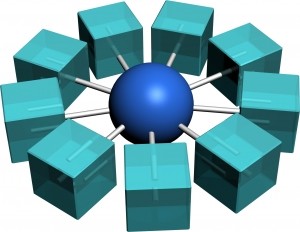 Duty and proximate cause are essential elements of every Florida personal injury and wrongful death negligence case.
Duty and proximate cause are essential elements of every Florida personal injury and wrongful death negligence case.
DUTY: “Where a defendant’s conduct creates a foreseeable zone of risk, the law generally will recognize a duty placed upon defendant either to lessen the risk or see that sufficient precautions are taken to protect others from the harm that the risk poses.” See Kaisner v Kolb, 543 So.2d 732, 735 (Fla. 1989) (citing Stevens v. Jefferson, 436 So.2d 33, 35 (Fla. 1983)).
PROXIMATE CAUSE: “The proximate causation element, on the other hand, is concerned with whether and to what extent the defendant’s conduct foreseeably and substantially caused the specific injury that actually occurred.” McCain v. Florida Power Corporation, 593 So.2d 500, 502 (Fla. 1992).
While the concept of foreseeability can be relevant to both elements, the concept “relates to duty and proximate causation in different ways and to different ends.” Id. at 502. Hence, merging the two elements into a single hybrid foreseeability analysis would be incorrect.
Duty is the key that opens the courthouse doors. It is the job of the judge, rather than the jury, to decide if it exists. For this reason, establishing duty is considered a matter of law vs a question of fact. (On this issue in McCain, in footnote 1 the court does note that “to determine this legal question the court must make some inquiry into the factual allegations. The objective, however, is not to resolve the issues of comparative negligence or other specific factual matters relevant to proximate causation, but to determine whether a foreseeable, general zone of risk was created by the defendant’s conduct.”) Once the duty is established, the plaintiff may proceed to prove fault and damages, which are proximate cause factual questions decided by juries turning on the question of foreseeability. “In this context, foreseeability is concerned with the specific, narrow factual details of the case, not with the broader zone of risk the defendant created.” Id at 502-503.
In McCain, the plaintiff was injured when the blades of a mechanical trencher he was operating struck an underground cable owned by Florida Power Corporation (FPC). Before the work commenced, FPC went to the site to mark the location of its underground cables. Plaintiff alleged that the accident happened in an area marked “safe.”
The trial judge decided that FPC owed plaintiff a duty and allowed the case to proceed to trial. The jury rendered a verdict for plaintiff and awarded damages. The Second District Court of Appeal threw out the verdict. The Florida Supreme Court then reversed the Second DCA, noting that the lower court’s analysis was unclear since it opined “that the question of foreseeability is for the trier of fact,” id. at 1271 (citing Crislip v. Holland, 401 So.2d 1115 (Fla. 4th DCA), review denied, 411 So.2d 380 (Fla. 1981)), while also contradictorily concluding that no duty existed as a matter of law because the specific injury suffered by McCain was not foreseeable.
In other words, the Second DCA merged the two elements — duty and proximate cause — into a single hybrid “foreseeability” analysis.
The Supreme Court pointed out that “the district court below erred in that it confused the duty and proximate causation elements, resulting in a mistaken assumption that Florida Power’s duty was to foresee the specific sequence of events that led to McCain’s injury, in light of the precautionary measures the company already had taken. See McCain, 555 So.2d at 1272 (Threadgill, J., dissenting).” Id at 504. This led to the district court deciding a factual question that should have been left to the jury. The proper inquiry was for the reviewing appellate court to determine “whether the defendant’s conduct created a foreseeable zone of risk, not whether the defendant could foresee the specific injury that actually occurred.” McCain at 504.
On this point, the Supreme Court decided that, as a matter of law, FPC owed the plaintiff a duty:
Here, there can be no question but that Florida Power had the ability to foresee a zone of risk. By its very nature, power-generating equipment creates a zone of risk that encompasses all persons who foreseeably may come in contact with that equipment. The extensive precautionary measures taken by Florida Power show that it understood or should have understood the extent of the risk involved. The very fact that Florida Power marked the property for McCain itself recognizes that McCain would be within a zone of risk while operating the trencher. Id at 504.
********************
Contact us at 305-758-4900 or by email (jgale@jeffgalelaw.com and kgale@jeffgalelaw.com) to learn your legal rights.
Jeffrey P. Gale, P.A. is a South Florida based law firm committed to the judicial system and to representing and obtaining justice for individuals – the poor, the injured, the forgotten, the voiceless, the defenseless and the damned, and to protecting the rights of such people from corporate and government oppression. We do not represent government, corporations or large business interests.
While prompt resolution of your legal matter is our goal, our approach is fundamentally different. Our clients are “people” and not “cases” or “files.” We take the time to build a relationship with our clients, realizing that only through meaningful interaction can we best serve their needs. In this manner, we have been able to best help those requiring legal representation.
DISCLAIMER: This information provided by Jeffrey P. Gale, P.A. is for informational purposes only and is intended to be used as a non-legal guide prior to consultation with an attorney familiar with your specific legal situation. It should not be considered legal advice or counseling. No such legal advice or counseling is either expressly or impliedly intended. This information is not a substitute for the advice or counsel of an attorney. If you require legal advice, you should seek the services of an attorney.
 Florida Injury Attorney Blawg
Florida Injury Attorney Blawg

